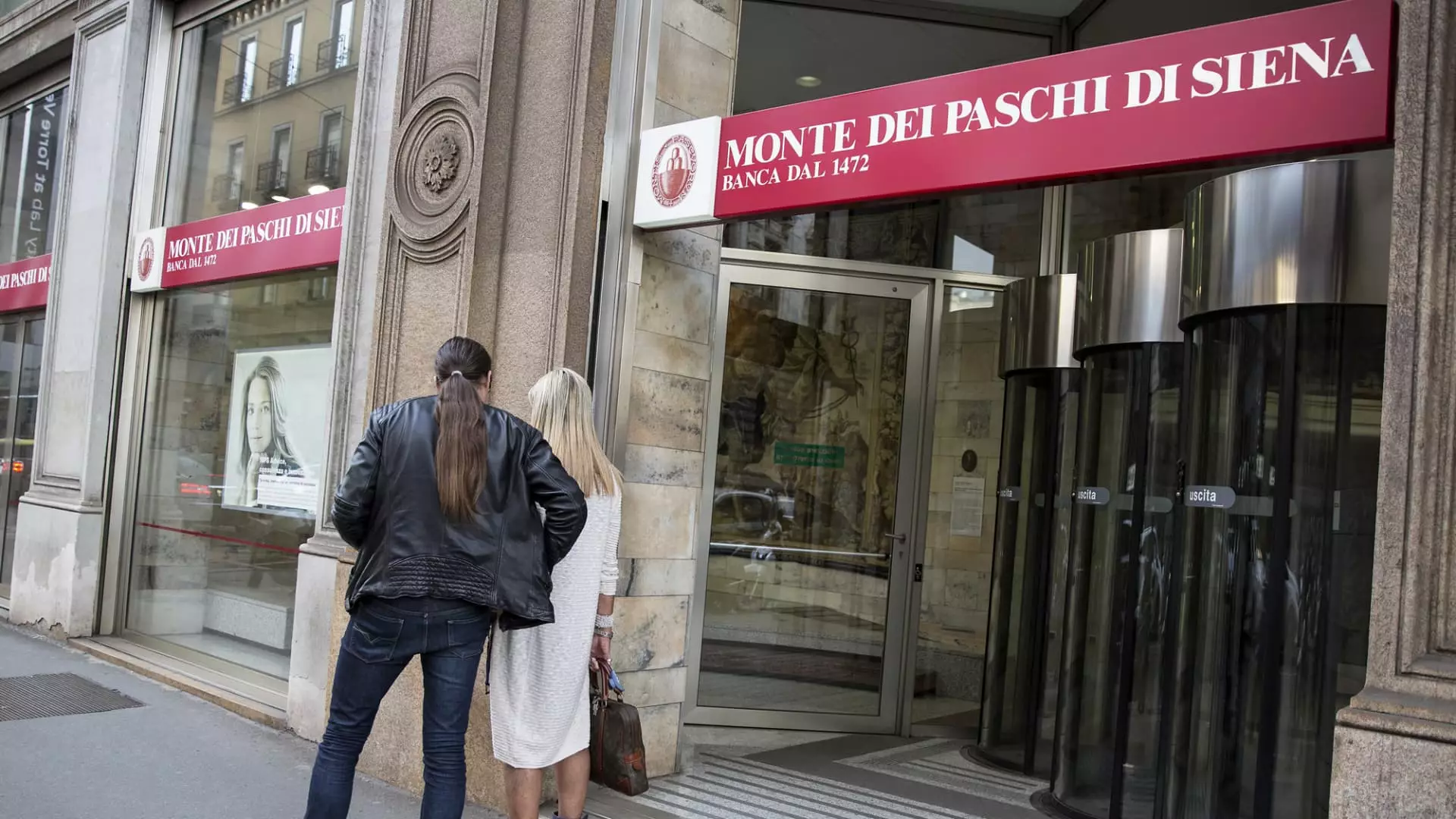In an era of relentless market turbulence, where even giants are faltering, Monte dei Paschi di Siena—the world’s oldest operating bank—has determinedly fixed its sights on acquiring Mediobanca, a prestigious institution specializing in investment banking and wealth management. This audacious move, which comes at a staggering price of 13 billion euros ($14.3 billion), is not just a mere business transaction; it reflects a deeper trend within the Italian banking sector and offers a window into the fraught dynamics of financial consolidation. CEO Luigi Lovaglio’s proclamation that Monte dei Paschi “is back” and “in control of our destiny” raises questions: Are they genuinely regaining their footing, or are they simply grasping for straws?
Market Context: A Stormy Sea of Volatility
Lovaglio remains undeterred by rising market volatility and ongoing uncertainties. He claims that the current climate confirms that “size matters” in banking—implying that expanded operations will grant them a competitive edge. However, let’s dissect this assertion: could it be that the market is not blind to the potential pitfalls of such acquisitions? With companies like 3i Group delaying transactions and strong arguments against the feasibility of Monte dei Paschi’s plans coming from analysts, this decision feels more impulsive than strategic. One cannot ignore the reservations voiced by Deutsche Bank and Barclays, both cautioning against the perilous road ahead. While Lovaglio highlights the urgency of this merger as a vital step in consolidating Italian banking power, the broader implications raise alarm bells.
A Destructive Proposal? Mediobanca’s Reluctance
Mediobanca’s firm rejection of Monte dei Paschi’s overtures as “destructive” isn’t merely a tactical response; it speaks volumes about the foundational philosophical divide between the two institutions. Mediobanca is not just any bank; it represents a more agile and lucrative segment of the financial bubble, focused on wealth management and investment banking, far removed from Monte dei Paschi’s historical challenges and government bailouts. As these two entities stand at opposite ends of the banking spectrum, one has to wonder: what genuine synergies can arise from this attempted union?
It’s a classic case of disparate cultures colliding. Mediobanca’s valuation has plummeted since the announcement, and both banks suffered a decline of roughly 5% on the market. Are shareholders simply being asked to accept more risk than reward? The broader concern lies in the idea of consolidation itself; is it really a path to success, or is it a desperate plea borne out of fear?
The Nature of Bank Mergers: Risks and Rewards
Historically, bank mergers have followed a cyclical pattern—some flourish while others flounder spectacularly. With Lovaglio betting on what he believes to be a “fair price,” the unspoken implications of this deal echo a fundamental question: What happens if the projected benefits fail to materialize? Potential excess capital, as suggested by Barclays, could reduce funding availability for other vital operations and growth avenues. A perilous gamble, indeed.
Moreover, Lovaglio’s confidence risks dismissing the financial reality presented by market instability. Are we witnessing a new wave of collective delusion where bank leaders become intoxicated by the allure of scale? It’s essential to tread cautiously here, or we might witness the troubling consequences of marrying two distinctly different banking ideologies that only serve to dilute each institution’s core competencies.
The Path Ahead: Looking Beyond the Deal
As Lovaglio envisions this merger as a stepping stone toward becoming a “protagonist” in the European banking scene, we must question whether this ambition aligns with the spirit of genuine customer service, ethical financing, and sustainable banking practices. History tells us that mergers often distract from the essential functions of a bank: serving its customers and supporting economic stability.
In a world where banking scandals and economic turmoil are ever-present, the pursuit of lofty ambitions may overshadow the need for responsibility and prudence. While the narrative of consolidation seems enticing, one cannot ignore how it may unwittingly lay the groundwork for future financial crises. So, is this a sign of resilience or a harbinger of reckless ambition? Only time will tell.

